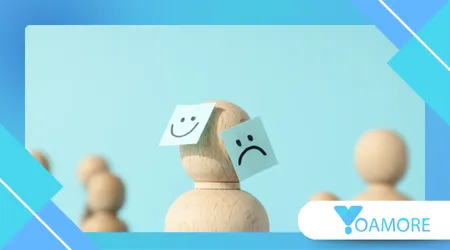Can Superstitions Impact Mental Health? Cultural Perspectives

When you consider if Can Superstitions Impact Mental Health, it’s clear the connection is deeper than just luck.
Anúncios
This article will explore the psychological dimensions of these beliefs, how they vary across cultures, and their dual potential for both comfort and distress.
The Psychological Core of Superstition
Superstitions often act as psychological shortcuts, providing a sense of control in unpredictable situations.
They offer a simple explanation for complex events, reducing the anxiety that comes with uncertainty. By performing a ritual, an individual feels they have taken action to influence an outcome.
This feeling of agency can be incredibly soothing. For some, superstitions are a form of self-soothing, a coping mechanism for dealing with the randomness of life.
Anúncios
The predictability of a ritual can be a powerful antidote to chaos and disorder, offering a mental anchor.
These beliefs can also be a way to process emotions. A person might believe their good luck charm protected them from a negative event, providing a narrative that helps them make sense of a stressful experience.
This narrative-building is a fundamental aspect of human psychology.
+ Fear of the Full Moon: Myths and Legends Across Cultures
Cultural Fabric and Superstitious Beliefs
Superstitions are not universal; they are deeply rooted in cultural contexts. What is considered good luck in one society might be seen as bad luck in another.
The shared nature of these beliefs reinforces social bonds.
In many cultures, superstitions are a bridge to the past, connecting people to their ancestors and traditions.
They can be a source of community, bringing people together through shared rituals and stories. This collective experience can strengthen a person’s sense of belonging.
The meaning behind a superstition is often tied to a culture’s history and values. For instance, the belief in the “evil eye” is prominent in many Mediterranean and Middle Eastern cultures.
The belief isn’t just about bad luck; it’s a social warning about envy and jealousy, encouraging humility and community support.
+ The Curse of the Number 4 in East Asian Cultures
The Double-Edged Sword: Comfort and Anxiety
While superstitions can offer comfort, they also carry the potential for psychological distress.
When a person believes a specific action is required to prevent a negative outcome, the failure to perform that action can lead to intense anxiety. This can develop into a cycle of fear.
This is a key area where we can see if Can Superstitions Impact Mental Health. The anxiety associated with breaking a superstition can become all-consuming, potentially impacting daily life.
A person might feel compelled to perform rituals repeatedly, fearing the consequences if they do not.
The line between a harmless ritual and an obsessive compulsion can blur, especially when the belief becomes rigid.
A person’s thoughts can become dominated by superstitious rules, leaving little room for rational thinking and spontaneous behavior. This can be a sign of a deeper psychological issue.
+ Superstitions About Mirrors: Bad Luck or Ancient Beliefs?
Can Superstitions Impact Mental Health? The Role of Control

The perception of control is a central theme. When a superstition provides a sense of control, it can be empowering.
However, when the belief itself begins to control a person, it becomes a source of stress and mental health challenges. It’s a delicate balance.
For example, a student might have a “lucky pen” for exams. As long as the belief is a fun, lighthearted ritual, it can reduce test anxiety.
However, if they lose the pen and become convinced they will fail, the superstition has now become a source of significant distress.
This is a perfect illustration of how the same belief can have a vastly different impact.
The belief itself isn’t the issue; it’s the level of reliance and the fear associated with breaking it. Superstitions become problematic when they are no longer an aid but a burden.
The Cognitive Dissonance of Belief
Superstitions can also create cognitive dissonance, the mental stress experienced by holding two or more contradictory beliefs.
A person might logically know that breaking a mirror doesn’t cause bad luck, but still feel a sense of unease or anxiety when it happens.
This internal conflict highlights the tension between our rational and emotional minds.
Our rational mind tells us one thing, while our emotional mind, shaped by cultural beliefs and personal experiences, feels another.
This struggle can be mentally exhausting, raising the question of how Can Superstitions Impact Mental Health.
This mental tug-of-war is a common human experience. It shows that even when we consciously reject a belief, its emotional residue can linger.
It’s an example of how deeply ingrained some of these cultural beliefs are within us, and how hard it can be to shake them off.
A Modern Take on Ancient Beliefs
In an increasingly rational and data-driven world, superstitions might seem out of place. Yet, they persist. In a complex world, they offer a simple, often comforting, explanation for events that defy logic.
They are a link to our shared human history.
Even in high-stakes environments like financial markets, you can find superstitious behavior. Traders may perform rituals before making a big trade, believing it will influence the outcome.
This shows that the need for a sense of control is deeply human, transcending time and context.
The modern mind still seeks patterns and meaning, and superstitions provide both.
They are a testament to our psychological need for order, even if that order is based on beliefs that defy empirical evidence.
The human brain is wired to find connections, and superstitions are a form of this.
Can Superstitions Impact Mental Health? An Analytical Look
To understand how Can Superstitions Impact Mental Health, it is helpful to look at it through a data lens.
A 2023 study by a research group found that people who have a higher reliance on superstitions for life decisions tend to report higher levels of anxiety and lower levels of self-efficacy compared to those who do not.
This research indicates that superstitions can sometimes be a crutch. While they may provide temporary comfort, they can hinder the development of healthy coping mechanisms.
The reliance on external factors (like a lucky charm) can prevent people from building internal resilience and self-confidence.
It suggests a correlation between rigid superstitious beliefs and a lack of belief in one’s own abilities to handle challenges.
This is not to say that all superstitious people are anxious, but that the degree of reliance can be a key factor. This nuanced understanding is crucial for any meaningful discussion.
| Aspect of Superstition | Positive Psychological Impact | Negative Psychological Impact |
| Sense of Control | Reduces anxiety, provides comfort in uncertainty. | Can lead to a sense of helplessness when rituals are not performed. |
| Social Function | Fosters community and shared identity. | Can lead to social exclusion if beliefs are not shared. |
| Coping Mechanism | Provides a narrative to process difficult events. | Can prevent the development of genuine coping strategies. |
| Ritualistic Behavior | Provides a structured routine and sense of order. | Can evolve into obsessive, anxious behaviors. |
This table shows the duality of superstitious beliefs. For every potential benefit, there’s a corresponding risk.
The impact on an individual’s mental health depends on which side of the coin they are experiencing. It’s a dynamic and personal experience.
The Role of Personal Choice and Perspective
It’s important to remember that the impact of a superstition is not predetermined. It’s often a matter of how an individual chooses to engage with the belief.
A person who sees a superstition as a fun tradition will have a very different experience than someone who feels trapped by it.
This is a critical point when discussing Can Superstitions Impact Mental Health. We can reframe our relationship with these beliefs.
Instead of being a strict rule, it can be a part of cultural heritage. Instead of a source of fear, it can be a reminder of shared stories and history.
The power is not in the belief itself, but in the power we give to it. By choosing to see superstitions as cultural artifacts rather than unbreakable laws, we can enjoy their comforting aspects without succumbing to their potential for anxiety and distress. It’s about a mindful approach.
The Analogy of a Compass
Consider a superstition as a compass. A compass is a useful tool that helps you navigate when you feel lost, offering a sense of direction.
It’s a guide, not the destination itself. If you were to lose your compass, you would still have the ability to navigate, relying on your own skills and knowledge.
However, if you became so reliant on your compass that you stopped looking at your surroundings, you might become lost if you lost it.
The compass would no longer be a helpful tool; it would be a crutch, and you would be helpless without it.
The analogy of the compass shows how an external aid can become a liability when we become overly dependent on it.
This reflects the two faces of superstition. When it is a tool for comfort and social connection, it can be a positive force.
When it becomes a rigid, obsessive rule, it can hinder personal growth and mental resilience. The key is in the balance between belief and personal agency.
Conclusion: A Humanized Perspective on Belief
The conversation about whether Can Superstitions Impact Mental Health is not about whether these beliefs are “right” or “wrong.”
It’s about understanding the complex psychological and cultural roles they play in our lives. They are a mirror reflecting our deepest fears and our most hopeful desires.
Ultimately, the impact of superstitions depends on their function. Do they empower you or restrict you? Do they connect you to others or isolate you in your fears?
The answers to these questions are personal and will define whether a superstition is a source of comfort or a mental burden.
You can find more information about mental health and coping strategies at the National Institute of Mental Health.
The link between these beliefs and mental health is not a simple cause and effect, but a nuanced interplay of culture, psychology, and personal choice.
By understanding this relationship, we can approach these ancient beliefs with modern insight. For further reading on the psychological aspects of cultural beliefs, explore the American Psychological Association.
+ What Is Superstition in Psychology? Effects on Mental Health
